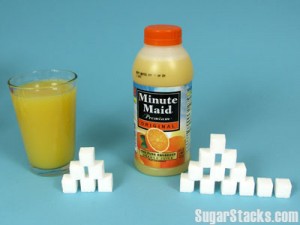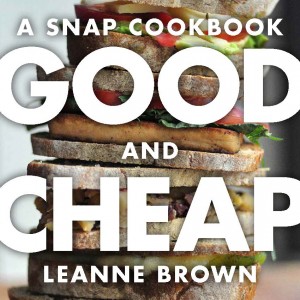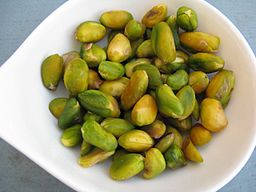This week, read about low-carb diets, the best diet for health and weight loss, how to strength train without a gym, and more.
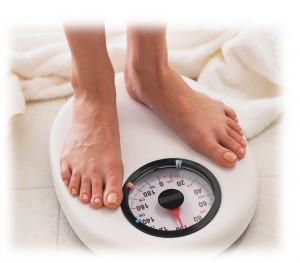 Low-Carb Diets In the News
Low-Carb Diets In the News
This week a clinical trial investigating the weight loss potential of a low carbohydrate diet versus a low-fat diet made a lot of headlines, and created a lot of confusion.
Investigators found that after 1 year, participants eating the low-carbohydrate diet lost about 11.7 lbs while the low-fat group lost about 4 lbs. Having worked on large-scale clinical trial with a long-term dietary intervention, I have a lot to stay about this particular study, but will save that for another time.
Before you go throw out your carbohydrate-containing foods, I urge you to read the excellent perspectives of David Katz, Marion Nestle, and Kevin Klatt, and you’ll find a good overview of this study at Examine.com. And if you want to reduce your carbohydrate intake, limit refined carbohydrates (sugars, processed foods), but keep the healthy beans/legumes, vegetables, and fruits, and unprocessed whole grains* that are important for good health.
* even whole grains can be highly processed, so best to eat intact unprocessed whole grains when possible for most fiber and nutrientsWhat is the Best Diet for Health and Weight Loss?
Weight Loss. Studies that have investigated various diets for weight loss have shown that generally the differences between diets is small, and the most important thing is adherence, that is, if people are able to stick to the diet. Also out this week was a new study of popular diets, published in the Journal of the American Medical Association, which reinforced this conclusion.
It’s not all about weight – what’s the best diet for health? Evidence shows that a Mediterranean-style diet is one of the best for health. This diet typically focuses on plant-based foods like vegetables, fruits, and whole grains; healthy fats from nuts, seeds, and olive oil; moderate intake of fish and poultry, and low intake of dairy products, red meat, processed meats, and sweets. Harvard’s Healthy Eating Plate does a nice job illustrating what a healthful diet looks like.
You’ll find my advice on how to eat for health and weight loss here.
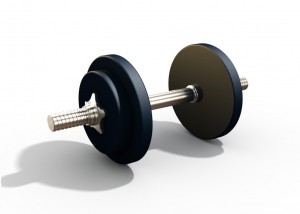 No gym, No problem!
No gym, No problem!
You don’t need access to a weight room of fancy equipment to strength train. Here’s a series of strength exercises and videos by Micheal Boyle that you can perform with one dumbbell (or less).
I especially like this dumbbell snatch shown in the video below, but check out the other exercises.
More links of interest this week:
- Where Are All the Female Test Subjects? In clinical trials, females represent only 1/3 of the subjects, and animals & human cell studies are mostly male – this is a problem for generalizing results to women. (The Atlantic)
- Should you limit carbs during workouts to boost performance & lose fat? Most of the time, no, or you’ll be compromising fitness gains and performance in the long run. (Matt Fitzgerald)
- How standing might be the best anti-ageing technique. Less sedentary time lengthens ‘telomeres’ (more on telomeres here). (The Telegraph/British Journal of Sports Medicine).
- More states reach historic highs of obesity. A disturbing trend that will hopefully end soon. (CDC/State of Obesity). Check out this interactive map.
- Put the Physical in Education. More data on how physical activity improves school performance – ADHD students improved math & reading scores after exercise. (Gretchen Reynolds, New York Times)
- Wine only protects against cardiovascular disease in people who exercise (Science Daily/European Society of Cardiology Congress)
- The remarkable anti-aging effects of aerobic exercise on systemic arteries. Study also shows that even sedentary older adults can benefit if they start to exercise, and authors recommend that exercise should be viewed as a “first-line” strategy for the prevention and treatment of arterial aging (Journal of Applied Physiology, September 2014)
- Who’s ready to eat insects as meat substitute? Study reveals most likely early adopters. (Medical News Today/Food Quality and Preference Journal)
- You can train your brain to prefer healthy foods. It’s worth the investment! (Medical News Today/Nutrition & Diabetes, September 2014)
- Skin glow from fruits and vegetables ‘more attractive than a tan’. Foods high in carotenoids (e.g., brightly coloured fruits & vegetables – e.g., carrots, squash) provide healthy glow. (Medical News Today/The Quarterly Journal of Experimental Psychology)
Share This:
